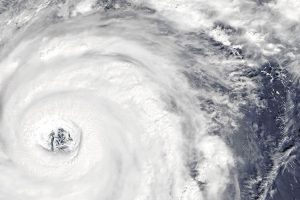China lodged diplomatic protests with India on June 26, alleging that Indian troops crossed the border between the two countries in the Sikkim region, the Press Trust of India reported on Tuesday, June 27.
Chinese foreign ministry spokesperson Lu Kang said China has lodged “solemn representations” with India, AFP reported. “Our position to uphold our territorial sovereignty is unwavering,” Kang said.
China’s People’s Liberation Army said on June 26 that the Indian military disrupted road construction in what it says is Chinese territory. Defense ministry spokesperson Colonel Ren Guoqiang said the “unilateral provocation” risks “seriously endangering the peace and stability of the border areas.”
Chinese foreign ministry spokesperson Geng Shuang said on June 26 that the Indian incursion was in violation of an 1890 treaty between Great Britain and China.
“Recently, the Indian border troops crossed the China-India boundary at the Sikkim section and entered the Chinese territory, obstructing Chinese border troops’ normal activities in Doklam. The Chinese side has taken proportionate measures in response.”
“The Chinese side requires the Indian side to respect the boundary convention and China’s territorial sovereignty, immediately withdraw their border troops that have crossed the boundary, conduct thorough investigation into this and safeguard peace and tranquility of the Sikkim section.”
Geng Shuang, Chinese foreign ministry spokesperson

Pilgrims prevented from crossing border
China has also closed the Nathu La pass border crossing in the Sikkim region over “security concerns.”
Indian Hindu pilgrims use the route for the Kailash Mansarovar Yatra – Mount Kailash is believed by Hindus to be the home of the god Shiva, and drinking the water from Lake Mansarovar cleanses the yatri (pilgrim) of sin.

The pass runs between Xigaze Prefecture in China’s Tibet Autonomous Region and India’s Sikkim state and sits 4,545 m (14,911 ft) above sea level.
China first prevented Indians on the yatra from entering the country on June 23, saying that landslides had affected roads in the area. According to the Times of India, China at the time said pilgrims would be allowed to enter when weather and road conditions improved. Each year, around 400 people undertake the Kailash Mansarovar Yatra by the Nathu La route.
Chinese incursion
Troops from the Chinese People’s Liberation Army reportedly entered Indian territory around ten days ago, “jostling” with Indian troops and destroying two makeshift bunkers. The Times of India reported that the Indian military did not confirm the incident in the Doka La area.
Indian soldiers formed a human wall along the Line of Actual Control to block the Chinese troops. The LAC is the de facto 4,000 km (2,500 mile) border across the Himalayas.


